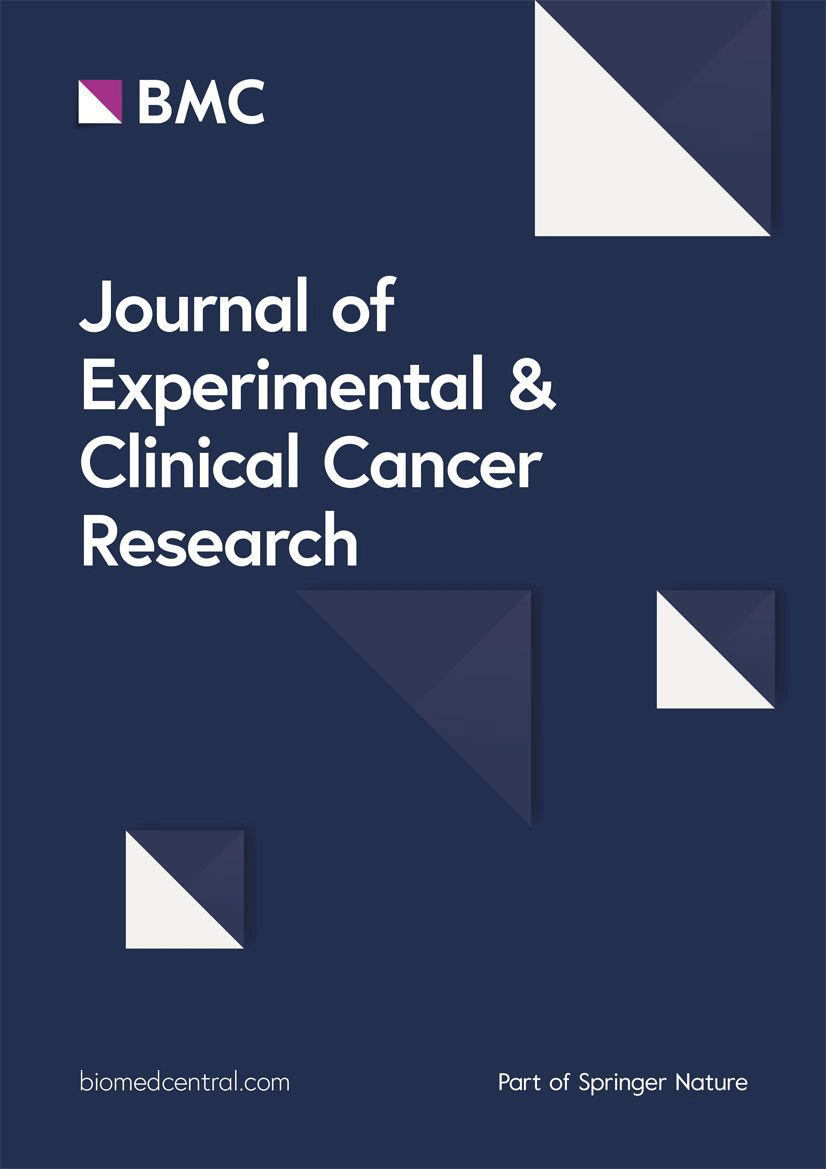上皮细胞到间质细胞的转变驱动癌症基因组的不稳定性。
IF 11.4
1区 医学
Q1 ONCOLOGY
Journal of Experimental & Clinical Cancer Research
Pub Date : 2025-04-30
DOI:10.1186/s13046-025-03402-x
引用次数: 0
摘要
上皮-间充质转化(Epithelial-to-Mesenchymal Transition, EMT)是胚胎细胞可塑性的一种形式,在成年细胞损伤和癌症期间被重新激活。Perelli等人最近的一项研究表明,EMT通过诱导染色体不稳定、结构基因组重排和染色体分裂,为肿瘤提供了进化优势,从而有利于高适应度恶性克隆的出现。本文章由计算机程序翻译,如有差异,请以英文原文为准。
Epithelial-to-mesenchymal transition drives cancer genomic instability.
Epithelial-to-Mesenchymal Transition (EMT) is a form of embryonic cell plasticity reactivated in adult cells during injury and cancer. A recent study by Perelli et al. demonstrates that EMT confers an evolutionary advantage to tumors by inducing chromosomal instability, structural genomic rearrangements and chromothripsis, thus favoring the emergence of high-fitness malignant clones.
求助全文
通过发布文献求助,成功后即可免费获取论文全文。
去求助
来源期刊
CiteScore
18.20
自引率
1.80%
发文量
333
审稿时长
1 months
期刊介绍:
The Journal of Experimental & Clinical Cancer Research is an esteemed peer-reviewed publication that focuses on cancer research, encompassing everything from fundamental discoveries to practical applications.
We welcome submissions that showcase groundbreaking advancements in the field of cancer research, especially those that bridge the gap between laboratory findings and clinical implementation. Our goal is to foster a deeper understanding of cancer, improve prevention and detection strategies, facilitate accurate diagnosis, and enhance treatment options.
We are particularly interested in manuscripts that shed light on the mechanisms behind the development and progression of cancer, including metastasis. Additionally, we encourage submissions that explore molecular alterations or biomarkers that can help predict the efficacy of different treatments or identify drug resistance. Translational research related to targeted therapies, personalized medicine, tumor immunotherapy, and innovative approaches applicable to clinical investigations are also of great interest to us.
We provide a platform for the dissemination of large-scale molecular characterizations of human tumors and encourage researchers to share their insights, discoveries, and methodologies with the wider scientific community.
By publishing high-quality research articles, reviews, and commentaries, the Journal of Experimental & Clinical Cancer Research strives to contribute to the continuous improvement of cancer care and make a meaningful impact on patients' lives.

 求助内容:
求助内容: 应助结果提醒方式:
应助结果提醒方式:


